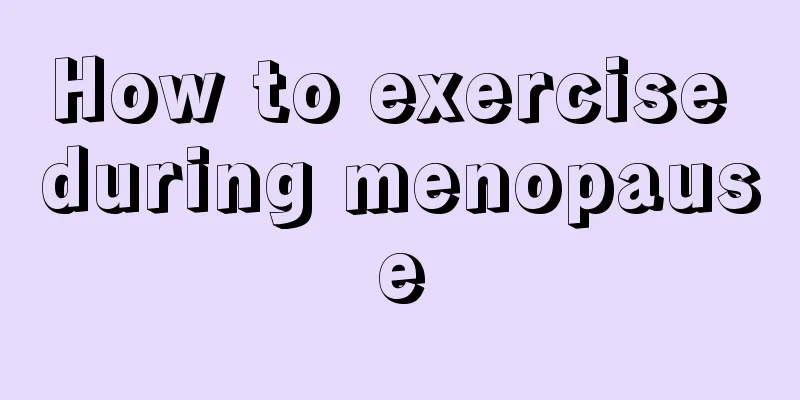What are the symptoms of hypoxia?

|
We all know that oxygen is an indispensable substance for normal breathing. However, sometimes some people may have difficulty breathing due to cardiovascular and cerebrovascular diseases, which is what we often call hypoxia. Hypoxia can cause serious harm. Not only can it make people coma, it can even cause brain death. Brain-dead people will become vegetative. So what are the symptoms of hypoxia? Prolonged brain deprivation of oxygen can cause irreversible damage or even brain death. General "hypoxia in the body" can cause damage to health even if it does not directly endanger life. Oxygen, like food and water, is a key substance for human metabolic activities and the first requirement for life movement. Nutrients must be oxidized to produce and release chemical energy. Hypoxia refers to oxygen deficiency, which is a general term for the lack of oxygen or oxygen in the air. Nature provides everyone with basic living conditions. However, if a person is in a special environment with a lack of oxygen, or if there is enough oxygen in the environment but the person cannot take in enough oxygen due to his or her own reasons, or if the person cannot make full use of the inhaled oxygen, the human body will undergo functional, metabolic and morphological changes. This condition is generally referred to as hypoxia or hypoxia. Therefore, medical scientists divide the causes of hypoxia into environmental hypoxia, pathological hypoxia, physiological hypoxia and exercise-induced hypoxia. symptom You feel tired without much physical exertion, you are mentally and physically exhausted, your mood swings and temperament change, you are extremely sleepy but cannot fall asleep. In severe cases, there are symptoms of brain hypoxia as described in 1 and 2. 1) Overuse of the brain When we exercise, our breathing becomes rapid and our heart rate increases, but no one has ever seen someone gasping for breath after working at a desk for a long time. Why? There are two reasons for this: First, prolonged mental work will increase the brain's oxygen consumption, and this excessive oxygen consumption by the brain cannot cause the body to compensatory increase in breathing speed and heart rate (the reason is not clear yet). Second, the brain is sensitive to hypoxia. The low oxygen state that is completely tolerable for other organs in the human body is unforgivable for the brain, so the hypoxia symptoms described above will appear. 2) Low lung volume Our breathing ability is related to the volume of our chest cavity. When we do chest expansion exercises, the chest cavity expands and the volume of the chest cavity increases, which is conducive to the relaxation of the lungs. However, when our arms are extended forward, the chest cavity is squeezed, which is not conducive to the relaxation of the lungs. The chest of people who work at a desk is under pressure for a long time, and it is even worse if they have the habit of hunching over. Therefore, brain hypoxia caused by insufficient ventilation is also one of the reasons that cannot be ignored. 3) Mental factors The ups and downs of career, endless work tasks, competition among colleagues, competition between companies, frequent large fluctuations in emotions (large outflows and inflows when stocks and financial markets fluctuate greatly, troubles in family life, etc.). Long-term exposure to this kind of mental stress or fluctuations is far more harmful than the effect of the cold virus on the human body. People will become easily fatigued, have reduced resistance, become irritable, short-tempered, depressed, etc. The causes of this mental influence cannot be explained by medical methods. General manifestations The common symptoms of hypoxia are dizziness, headache, tinnitus, blurred vision, weakness in the limbs, followed by nausea, vomiting, shallow, rapid and weak breathing, and a rapid and weak heartbeat. As the lack of oxygen worsens, the person will gradually become confused, the skin, lips, and nails will turn purple, the blood pressure will drop, the pupils will dilate, and the person will fall into a coma. Finally, the person will die from difficulty breathing, cardiac arrest, and suffocation due to lack of oxygen. Normal oxygen metabolism begins with ventilation and gas exchange in the respiratory system. Any obstruction in any link of the breathing process will result in insufficient gas exchange. At this time, the human body will first make a compensatory protective response. Due to the direct effect of nerve reflex or blood gas, the depth of breathing can be increased, and then the breathing rate can be accelerated. If the compensatory response cannot meet the body's needs, hypoxia will occur. As a result, the partial pressure of oxygen in the arterial blood is lower than normal, while the partial pressure of carbon dioxide is higher than normal due to the accumulation of carbon dioxide. This phenomenon is collectively called respiratory insufficiency. If the arterial oxygen partial pressure is lower than 60mmhg, or the carbon dioxide partial pressure is higher than 50rnmhg, it is called respiratory failure. The harm of hypoxia: No matter what the cause of hypoxia, it will change the body's function and metabolic state. The nervous system is most sensitive to hypoxia. Even mild hypoxia can cause intellectual and visual impairment. The brain is the organ with the greatest demand for oxygen among all organs in the human body. The weight of the brain accounts for only 2% to 3% of body weight, but the brain's oxygen consumption accounts for 20% to 30% of the total human oxygen consumption. 15% of the heart's blood output goes to the brain. However, the brain tissue itself has almost no energy reserves and relies entirely on oxygen from fresh blood brought in by cerebral circulation to maintain survival and perform normal physiological functions. Therefore, brain tissue has the lowest tolerance to hypoxia (ischemia). |
<<: What to do if you feel dizzy due to brain hypoxia
>>: When can't you do scraping
Recommend
What causes pain in the right back of the head?
Health issues are always the most concerned by ev...
How to make hair thicker
There are many common problems in life, and we ca...
Dietary treatment for pancreatic cancer
Dietary treatment for pancreatic cancer: 1. Garde...
Traditional Chinese medicine treatment for bile duct cancer
The first choice of medicine for patients with ga...
What are the tests for bladder cancer
Bladder cancer is a common malignant tumor of the...
What are the effects of lumbar traction?
There are many reasons for lumbar disc herniation...
What are the symptoms of gallstones?
In fact, many times when gallstones occur, there ...
What are the differences between corns and common warts
Common warts are a common skin disease. Because t...
What is the fastest and most effective way to remove acne scars?
The residual acne scars still have a certain impa...
How to care for oily skin
Generally speaking, dry skin is prone to dehydrat...
Is the recurrence rate high after hemisection of thyroid cancer?
There is a certain risk of recurrence after hemis...
Common methods of cognitive therapy
Many people feel very insecure about themselves. ...
Can magnolia flower and melon pedicles treat rhinitis?
Rhinitis is a very common nasal disease in daily ...
Is the smell of vomiting blood in late stage liver cancer contagious?
In the late stage of liver cancer, symptoms of vo...
How many times a day is normal to defecate
A normal person should have a bowel movement once...









